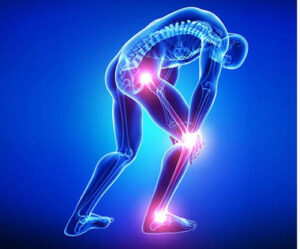Which Conditions Are Treated By Orthopaedicians?
Understanding the role of orthopaedic doctors and the breadth of conditions they treat underscores their pivotal role in musculoskeletal health.
Orthopaedic specialists, also referred to as orthopaedicians, focus on diagnosing and treating injuries and conditions affecting the musculoskeletal system, including bones, ligaments, nerves, joints, and tendons. This article offers an overview of orthopaedics, detailing the various conditions these specialists address and outlining what individuals can expect during an orthopaedic appointment.
What is Orthopaedics?
Orthopaedics refers to a medical speciality focusing on the care of the skeletal system and its related parts, including bones, joints, tendons, muscles, ligaments, and nerves. Orthopaedic doctors can be classified into two main categories: surgical and nonsurgical.
Surgical orthopaedic doctors are referred to as orthopaedic surgeons, while nonsurgical ones include physiatrists and specialists in physical medicine and rehabilitation.
Orthopaedic specialists often work as part of a comprehensive orthopaedic treatment team, which may include physician assistants, occupational and physical therapists, nurse practitioners, and athletic trainers.
What Do Orthopaedic Doctors Do?
Orthopaedic doctors specialise in addressing issues related to the musculoskeletal system. Their responsibilities include:
While orthopaedic doctors are knowledgeable about the entire musculoskeletal system, many choose to focus on specific areas. These subspecialties include the spine, hand, hip and knee, shoulder and elbow, sports medicine, foot and ankle, and trauma surgery. One such best orthopaedic doctors in Chennai is Dr Madan Mohan Reddy, who specialises in diagnosing, managing and treating various orthopaedic conditions.
What Types of Conditions Do Orthopaedic Doctors Treat?
Orthopaedic doctors treat a wide array of conditions, such as:
● Bone fractures
● Joint or back pain
Which Procedures Do Orthopaedic Doctors Perform?
Orthopaedic doctors recommend a variety of treatments and procedures for the conditions they handle. Some of them include:
1. Nonsurgical Treatments
Orthopaedic doctors often focus on nonsurgical treatments first before recommending surgery. These are also called conservative treatments. Some types of nonsurgical treatments include:
2. Surgical Treatments
In some cases, an injury or a condition doesn’t improve with non-surgical measures. In such cases, an orthopaedic doctor may advise surgery. Some examples of operations performed by an orthopaedic surgeon include:
When to Consult an Orthopaedic Doctor?
You must consult the best orthopaedic doctors in Chennai ifyou experience:
Understanding the role of orthopaedic doctors is crucial for anyone dealing with musculoskeletal issues ranging from fractures and joint pain to complex surgeries like joint replacements. These specialists play a key role in diagnosing, treating, and rehabilitating patients to restore their mobility and quality of life. Take the first step towards better musculoskeletal health with Apollo by scheduling a consultation with Dr Madan Mohan Reddy, one of the best orthopaedic doctors in Chennai.






